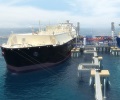

Bangladesh has reversed its decision to skirt the expensive spot LNG market following a surge in demand for natural gas in industries and power plants, and signs of energy shortages that are forcing its importers to procure gas at record high prices.
The South Asian country’s response underscored the dilemma of some of Asia’s regional economies that have shifted part of their energy mix towards natural gas in recent years, but are feeling the pinch of high prices for a fuel that has never really been truly competitive.
The Energy and Mineral Resources Division (EMRD) under the Ministry of Power, Energy and Mineral Resources (MPEMR) has instructed state-run Petrobangla to take necessary action to resume spot LNG imports this month, a senior Petrobangla official told S&P Global Platts Sept. 20.
State-owned Rupantarita Prakritik Gas Co. Ltd. (RPGCL), a fully-owned subsidiary of Petrobangla, floated a tender to purchase one spot LNG cargo of around 138,000 cu m last week, for September delivery, and Bangladesh is considering two spot LNG cargoes for October, the official said. This is in addition to around 5-6 term LNG cargoes imported every month.
Petrobangla had halted spot LNG imports in the first week of August following instructions from the EMRD in view of rising spot prices that were trading around $15/MMBtu at the time. Bangladesh’s last spot LNG cargo for August was bought at $13.069/MMBtu, while term cargoes were at around $9.0/MMBtu.
Industries, power plants and households have been facing acute gas shortages over the past one and a half months, forcing the government to shut compressed natural gas, or CNG, filling stations for a few hours every day from Sept. 19 by government order.
Industrial output has been squeezed, gas-guzzling power plants have limited generation and household consumers are feeling the pinch of the natural gas supply crisis. Around 2,157 MW of electricity generation was hampered on Sept. 19 due to gas shortages, according to state-run Bangladesh Power Development Board, the sole buyer of electricity in the country.
The government has also asked all oil-fired power plants to be on standby to cope with the energy crisis, president of Bangladesh Independent Power Producers’ Association, or BIPPA, Imran H Karim told S&P Global Platts Sept. 20.
Managing director of state-owned gas distribution company Titas Gas Transmission and Distribution Company Ltd, or TGTDCL, Ali Iqbal Md Nurullah said shortages were due to lower LNG imports and gas consumption above approved levels by some industries.
“Industrial output at our factories is being hampered badly due to lower-than-expected gas supply coupled with lower gas pressure,” President of Bangladesh Textile Mills Association, or BTMA, Mohammad Ali Khokon told S&P Global Platts Sept. 20.
Currently, Bangladesh has long-term LNG supply deals with Qatar’s Qatargas and Oman’s Oman Trading International (OTI), and Petrobangla also started importing spot LNG from September 2020.
The country expects to import around 64 LNG cargoes in 2021 from term suppliers, two cargoes or 3% lesser than the previous year, out of which 40 cargoes are expected from Qatargas and 24 from OTI. In comparison, it bought 43 LNG cargoes from Qatargas in 2019 and 40 in 2020, and 20 cargoes from OTI in 2019 and 26 in 2020.
Initially, Petrobangla had plans to import 18 LNG cargoes from the spot market in 2021 against only one cargo in 2020 but actual volumes could be lower this year.
Source: Platts